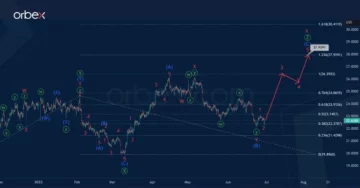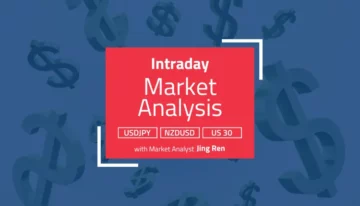There have been persistent rumors lately that the BoJ would “tweak” its yield curve control (YCC) mechanism when it meets tomorrow. What exactly does that mean? What impact can it have on the market? And how will the market react if the BoJ doesn’t act?
The rumors are just that, though: rumors. For now, the consensus among economists and analysts is that there will be no change in policy from the BoJ. But “no change” isn’t the same as “policy neutral”. And the last time the BoJ tweaked its YCC program, it billed it as being policy neutral.
What happened?
The driving impetus behind this is weakness in the yen, despite insistence by Japanese authorities to the contrary. A weak yen is good for economic performance but translates into inflationary pressure. Japan would like a weaker yen, but not so much that it starts to affect monetary policy.
As the USDJPY pushed above 140 recently, Japanese officials have come out to say they were “monitoring” the situation. The implication being that authorities don’t want the currency pair to keep ascending too much. But, aside from some minor fluctuations, any real turnaround in the direction of the currency would need intervention from the BoJ.
Pulling out the big guns
Last year, the USDJPY made a run for 150, and was pulled back through the early part of the year over speculation that the new BoJ governor, Kazuo Ueda, would start moving towards raising rates. But, after Ueda took the top post and made it abundantly clear he was sticking with the ultra-easing policy, the exchange rate went back up over 140.
The rumors that the BoJ could adjust – or do away with – YCC is what is seen as keeping the yen stronger lately. So, if the BoJ does deliver a “tweak”, it could push the yen to be stronger for a while. On the other hand, if nothing happens, the market might conclude the BoJ is unwilling to stop the descent of the yen, and the exchange rate could jump higher.
What could happen?
YCC means that the BoJ steps in to buy or sell bonds in order to keep interest rates on Japanese debt within a certain range. That is, from -1% to +1%. When the BoJ tweaked the policy last time, they broadened the range from -0.5% to +0.5%, claiming it was “policy neutral”, because the range increased in both directions. But, in practice, all of the pressure is on the upside; so, any broadening of the range implies tightening.
Among the possibilities for what the BoJ could do is once again broaden the range by another 0.5%, calling it “policy neutral”. But, in practice, allowing for 0.5% more tightening in the bond market. An even more hawkish move would be to say that YCC is no longer providing the benefits needed, and do away with it entirely. That is seen as a less likely option, since it wouldn’t allow the BoJ to pass it off as policy neutral. BoJ Governor Ueda has committed to communicating with the market before a change is made.
Trading the news requires access to extensive market research – and that’s what we do best.
- SEO Powered Content & PR Distribution. Get Amplified Today.
- PlatoData.Network Vertical Generative Ai. Empower Yourself. Access Here.
- PlatoAiStream. Web3 Intelligence. Knowledge Amplified. Access Here.
- PlatoESG. Automotive / EVs, Carbon, CleanTech, Energy, Environment, Solar, Waste Management. Access Here.
- BlockOffsets. Modernizing Environmental Offset Ownership. Access Here.
- Source: https://www.orbex.com/blog/en/2023/07/boj-meeting-and-possible-ycc-adjustment
- :has
- :is
- :not
- $UP
- a
- above
- access
- Act
- Adjustment
- affect
- After
- again
- All
- allow
- Allowing
- among
- an
- Analysts
- and
- Another
- any
- app
- ARE
- AS
- Authorities
- away
- back
- BE
- because
- been
- before
- behind
- being
- benefits
- BEST
- Big
- Blog
- boj
- bond
- bond market
- Bonds
- both
- broaden
- but
- buy
- by
- calling
- CAN
- certain
- change
- claiming
- clear
- come
- committed
- communicating
- conclude
- Consensus
- contrary
- control
- could
- Currency
- curve
- Debt
- deliver
- Despite
- direction
- do
- does
- Doesn’t
- Dont
- driving
- Early
- Economic
- economic performance
- economists
- entirely
- Ether (ETH)
- Even
- exactly
- exchange
- Exchange rate
- extensive
- fluctuations
- For
- forex
- Forex Trading
- from
- good
- Governor
- hand
- happen
- happened
- happens
- Have
- Hawkish
- he
- higher
- How
- HTTPS
- if
- image
- Impact
- in
- increased
- Inflationary
- interest
- Interest Rates
- intervention
- into
- IT
- ITS
- Japan
- Japanese
- jump
- just
- Keep
- keeping
- Last
- lately
- less
- like
- likely
- live
- longer
- made
- Market
- market research
- mean
- means
- mechanism
- meeting
- Meets
- might
- minor
- Mobile
- Mobile app
- Monetary
- Monetary Policy
- more
- move
- moving
- much
- Need
- needed
- Neutral
- New
- news
- no
- nothing
- now
- of
- off
- officials
- on
- once
- Option
- or
- order
- Other
- out
- over
- pair
- part
- pass
- performance
- plato
- Plato Data Intelligence
- PlatoData
- policy
- possibilities
- possible
- Post
- practice
- pressure
- Program
- providing
- Push
- pushed
- raising
- range
- Rate
- Rates
- React
- real
- recently
- requires
- research
- Rumors
- Run
- s
- same
- say
- seen
- sell
- since
- situation
- So
- some
- speculation
- start
- starts
- Steps
- sticking
- Stop
- stronger
- that
- The
- There.
- they
- this
- though?
- Through
- tightening
- time
- to
- tomorrow
- too
- took
- top
- towards
- Trading
- Upside
- URL
- want
- was
- we
- weakness
- went
- were
- What
- What is
- when
- while
- will
- with
- within
- would
- year
- Yen
- Yield
- yield curve
- yield curve control
- zephyrnet











